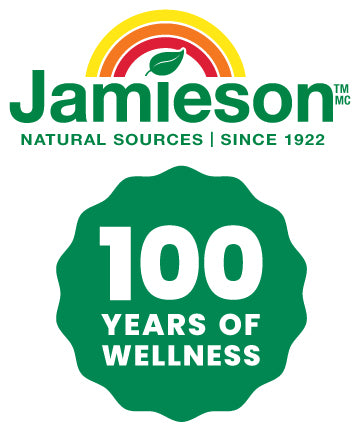When it comes to protein, you may think you have all of the answers: grill your chicken, sear your steak, and watch your portions. Bubble buster: there is far more to it than meets the eye. Did you know, the word “protein” traces its origins to the Greek word “proteios” (loosely translated as “first one” or “first in rank”). Definitively, proteins are comprised of a diverse set of amino acids chained together by peptide bond, that come together to form what is commonly known as “protein”. Now that you know the basics, here are some things you may not have known about protein.
1. You need it to stay alive.
Of the many nutrients that keep us running, protein is first to the races. Responsible for building and repairing muscle tissues, protein is instrumental to our every move and is fundamental to our day-to-day. Joined by fats and carbohydrates as one of the three existing macronutrients, proteins complete nearly 15% of the average person’s bodyweight, and exist in every single cell occupied by the human body. Without it, life couldn’t exist.
2. Not all proteins are created equal.
Did you know that your body can generate nearly 2 million types of protein, and that over 10 million different kinds have been identified across all biological organisms? Not all of these are created equal, nor do they serve the same purpose. While some are structured for storage, others stand by for defense. For instance, a hormonal protein, like insulin, would be charged with regulating blood sugar levels through the pancreas; while a structural protein like collagen would be responsible for forming the connective framework of your muscles, bones, tendons, skin and cartilage. Whey protein, often found in supplements and milk products, is a mixture of proteins that occupy a more ”functional” role, transporting vital materials, such as water and nutrients, to your cells.
3. It’s good for more than just working out.
Though often cast as a post-workout ”pick-me-up”, protein is good for more than just building muscle mass. This powerhouse can be credited for:
- Stabilizing blood sugar
- Improving mood and energy
- Supporting weight and fat loss
- Contributing to cognitive benefits
- Managing bone and cardiovascular health
- AND slowing the aging process
4. You may need less (or more) than you think.
Of the 20 amino-acids necessary, 9 of them are considered essential. This means your body isn’t equipped to make them, and you need food, or supplementation, to fuel the need. Protein is a key pillar of our diets, and plays a critical role in establishing good health. Canada’s dietary recommendations on this have fluctuated throughout the years, starting as a suggestion that 10-12% of calories consumed be from protein in 1939, evolving into today’s recommendation lying in the upper ranges of 35%, ranking even higher for children and new mothers. Though protein-rich diets are great for nutrition, it’s important to keep track of how much you’re consuming and for what purpose, as the amount necessary varies depending on your need for it. On average:
- An adult 19+ looking to maintain their body’s current state is in need of no more than 0.8g of protein per kg of body weight. This means that an adult weighing 68 kg would require 60 grams of protein.
- In instances where our bodies are experiencing an unusual amount of stress, be it due to illness, physical performance or intense fatigue, a higher intake of 1.2-1.8g/kg is needed.
- In pregnancy, it is recommended₃ to consume roughly 1.1g/kg , fluctuating up to 1.3g/kg once breastfeeding.
- Is building muscle mass your M-O? You’ll need 1.4 to 2.0g per kg per day to meet your goals.
5. You can get it from more than just meat.
Legend has it that protein can only be acquired through meat. False. The truth is: the sources are plentiful! Foods like fish, eggs, nuts, beans and legumes are both rich in protein and easy to find, no matter your regime.
| Food Source | Amount | Protein | Perfect in |
|---|---|---|---|
| Black beans | 1 cup | 15 g | Olympic-Worthy Veggies and Black Bean Bowl |
| Salmon | 3 oz fillet | 17 g | Baked Salmon with Pomegranate Salsa |
| Chicken | 1 cup, chopped | 38 g | Lemon-Ginger Chicken Stir Fry |
| Quinoa | 100 g | 14.1 g | Roasted Brussels Sprouts and Quinoa Salad |
If you’re not sure you’re getting enough protein, or could use the extra energy to kick start your day, a protein supplement could be right for you. Typically including 20 g per serving, a protein supplement is a great way to fill in any gaps and serves as a great option for a snack or meal. Protein supplements can also provide increased energy to your everyday, and even help build muscle mass when paired with regular diet and exercise.
Substituting some carb-sourced calories with protein calories in the morning or afternoon will also help you feel fuller longer, providing you with more balance and making it easier to curb temptation. It’s as simple as popping your favourite mix of fruit and produce into a blender, topping it off with milk (or milk alternative) and some protein powder, blend with ice and enjoy!
In one swoop of the scoop, our nutrient- dense protein supplement provides you with 100% of your daily vitamin needs. Giving you the opportunity to bring fruits, vegetables and seeds into the fold, it is a totally versatile way to get started on your 5 a day.
In need of ideas? Head over to our blog for inspiration.
Sources:
- Sinatra, D. S. (2017, December). Why Do We Need Protein In Our Diets? Heart MD Institute. Retrieved from https://heartmdinstitute.com/diet-nutrition/need-protein-diets/
- Osterweil, N. (2004, January). The Benefits of Protein. Web MD. Retrieved from https://www.webmd.com/men/features/benefits-protein#1
- Pendick, D. (2018, January). How much protein do you need every day? Harvard Health Publishing. Retrieved from https://www.health.harvard.edu/blog/how-much-protein-do-you-need-every-day-201506188096
- Woods, P. (2012, August). Eight Types of Protein and Their Function. San Francisco Chronicle. Retrieved from http://healthyeating.sfgate.com/eight-types-protein-function-4559.html
- Axe, Dr. (2015, May). Protein Foods: 8 Health Benefits of Foods High in Protein. Retrieved from https://draxe.com/protein-foods/
- NIH U.S. National Library of Medicine. (2018, March). What are proteins and what do they do? Retrieved from https://ghr.nlm.nih.gov/primer/howgeneswork/protein
- Whitbread, D. MScN. (2016, April). 16 Nuts and Seeds High in Protein. Retrieved from https://www.myfooddata.com/articles/high-protein-nuts.php




